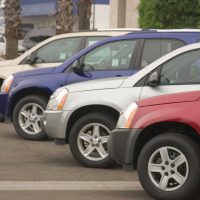Lemon Law Buyback: Is My Offer Fair?

If you were sold a defective vehicle and the vehicle is still under the manufacturer’s warranty, you are entitled to protection under California’s Lemon Law. That means the dealership must repair the defect or offer you a replacement or refund (buyback). If the dealership does offer a buyback, are they required to pay full price? When is a reduced price considered unfair or illegal under the Lemon Law? Continue reading to learn about when a buyback offer may be unfair, and if you bought or leased a lemon, call a seasoned California lemon law attorney for help protecting your rights and your safety.
What Is a Buyback?
A buyback is the most common result of a successful Lemon Law claim. The dealership has failed to repair your vehicle after a reasonable number of attempts, and now they are legally required to either replace the vehicle or buy it back from you.
What Price Should the Dealership Pay in a Buyback?
When a dealership issues a buyback under the Lemon Law, they are required to reimburse you for all vehicle costs, less a mileage offset. If your vehicle came with additional options, for example, which increased the price, they must pay for those options. They are not, however, required to pay for additional modifications installed by the owner.
Dealerships can reduce the price of the buyback based on a mileage offset. They cannot otherwise reduce the price based on other measures of fair market value. They are required to pay only up to the price you paid for the vehicle, however. There are a few problems that can arise with a buyback, rendering an offer unfair.
Negative Equity
Negative equity or “upside-down” car loans are a common unfair practice in buybacks. Negative equity can occur when you owe more on your loan than the vehicle is actually worth. Typically, this happens when a vehicle owner trades in a vehicle that is worth more than the car that turns out to be a lemon.
For example, let’s say an owner owes $20,000 on a vehicle. They trade in the vehicle for a car worth $15,000, which turns out to be a lemon. Even if the dealership buys the lemon back for the full value of the car–$15,000–the owner will have negative equity of $5,000. The owner will still owe $5,000 on a car they no longer have. Auto manufacturers typically refuse to pay back owners for negative equity, leaving the owner in a lurch caused by the manufacturer’s own negligent manufacturing.
Mileage Offset
Manufacturers may also take advantage of car owners and lessees with the mileage offset. There’s a proper way to calculate the mileage offset, which reduces the price the manufacturer must pay as part of the buyback. The formula takes the number of miles the buyer was able to get from the defective vehicle before they first brought it to a dealer or authorized repair shop, and divides that number by 120,000. The result is then multiplied by the total amount paid by the buyer. That final figure represents the offset.
Although the formula appears straightforward, dealers will try to manipulate the facts in order to expand the mileage offset and reduce the buyback price. The dealer will try to claim the date on which the vehicle was first taken for repairs was as late as possible, maximizing the miles on the vehicle at the time. Your Lemon Law attorney can help you push back, establishing an earlier date that should be used for the mileage offset calculation.
If you’re experiencing persistent problems with your new or used vehicle in California and believe you may qualify for a Lemon Law buyback, get a free consultation on your case by contacting the seasoned California Lemon Law attorney Nick Nita in Los Angeles at 213-232-5055, or toll-free statewide at 877-921-5256.

